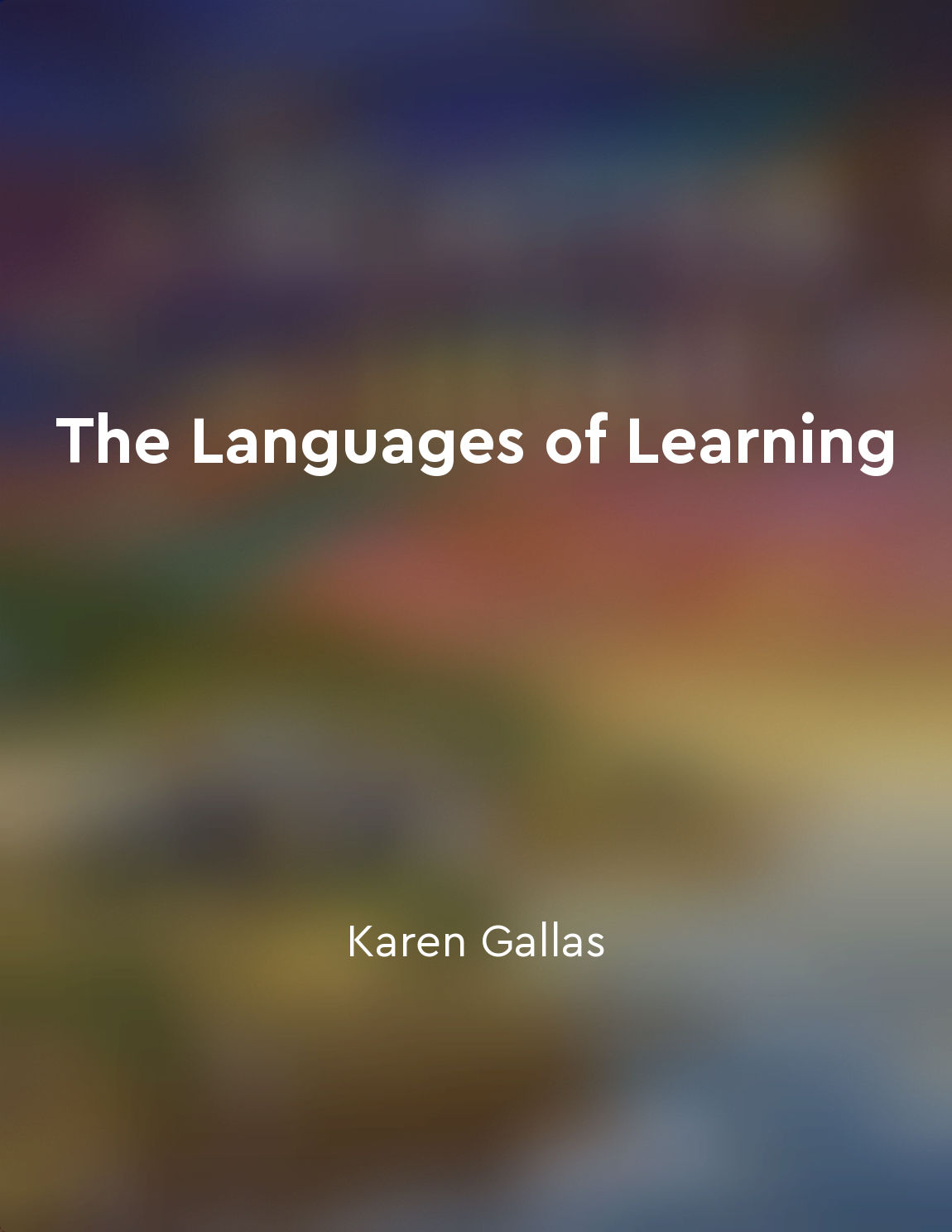Children's languages of learning are central to their development from "summary" of The Languages of Learning by Karen Gallas
As children engage in various forms of play, they are not merely passing the time or engaging in frivolous activities. Rather, they are engaging in meaningful and purposeful experiences that serve as the foundation for their learning and development. Through play, children are able to explore their interests, experiment with ideas, and make sense of the world around them. This process of exploration and sense-making is crucial for their cognitive, social, emotional, and physical development. Children's languages of learning are evident in the ways they interact with their environment, peers, and adults. These languages may take the form of spoken words, gestures, drawings, or even imaginative play scenarios. Regardless of the form they take, these languages are central to children's development as they serve as tools for communication, expression, and meaning-making. By engaging in these languages of learning, children are able to construct their own understanding of the world and make connections between ideas and experiences. When children are given the space and freedom to express themselves through their languages of learning, they are able to cultivate their creativity, curiosity, and critical thinking skills. This process of self-expression and exploration enables children to develop a sense of agency and autonomy, as they take ownership of their learning and actively participate in constructing their knowledge and understanding. As educators and caregivers, it is essential for us to recognize and value children's languages of learning. By acknowledging and supporting the diverse ways in which children express themselves and make sense of the world, we can create learning environments that are responsive, inclusive, and empowering. Through this recognition and support, we can help children develop the confidence, skills, and attitudes they need to navigate the complexities of the world around them and become lifelong learners.Similar Posts
Children learn best when they are interested
Children, like all human beings, learn best when they are interested in what they are learning. When something really interests...
Encourage a growth mindset in children
One of the key aspects of parenting is fostering a growth mindset in children, which involves encouraging them to believe in th...
Children should be given the opportunity to learn in a variety of ways
Children are natural learners who thrive when given the opportunity to explore and discover the world around them in various wa...

Create a bond between children and stories
The magic of storytelling lies in its ability to transport children to a world of wonder and imagination. Through captivating t...
Children learn best when they are actively engaged
John Caldwell Holt believes that children learn most effectively when they are actively engaged in the learning process. This m...

